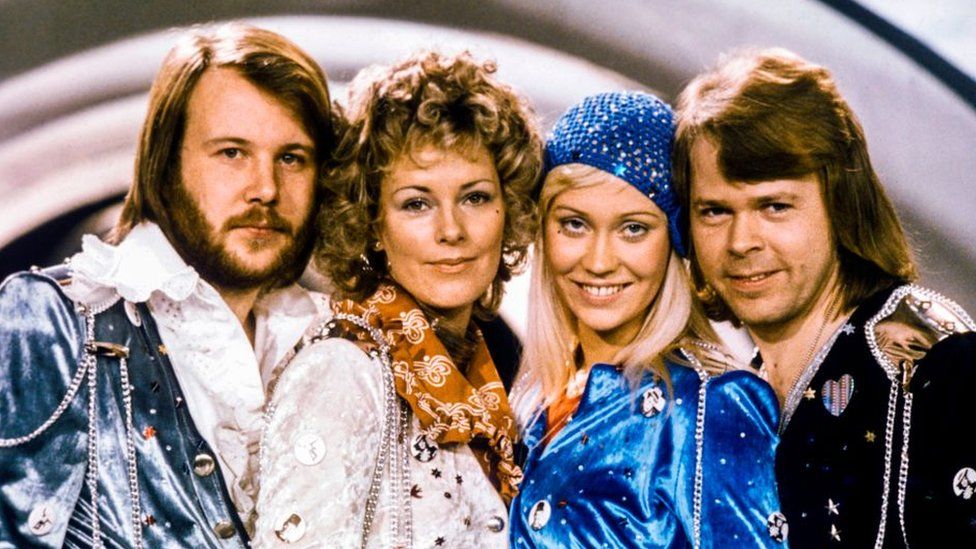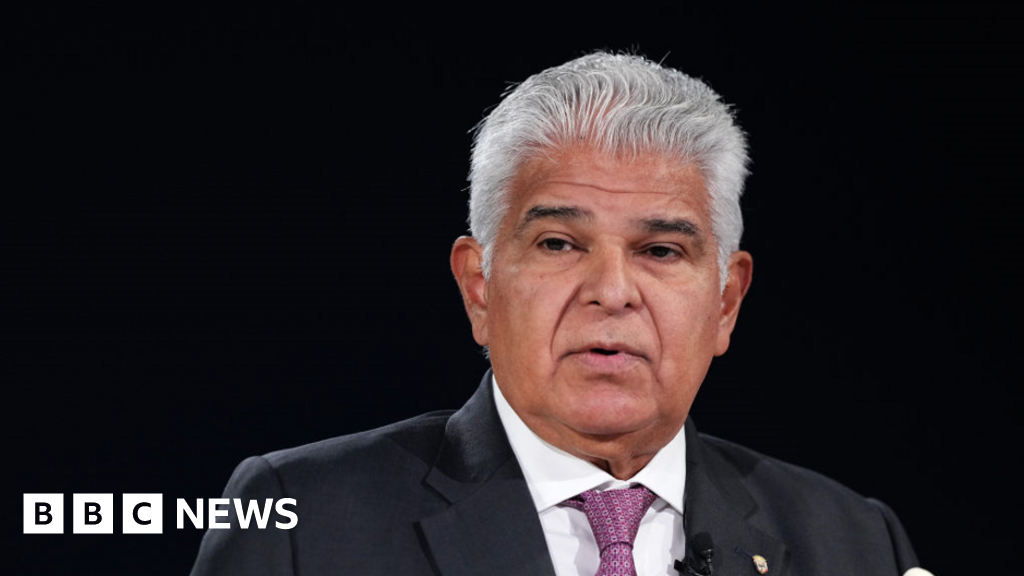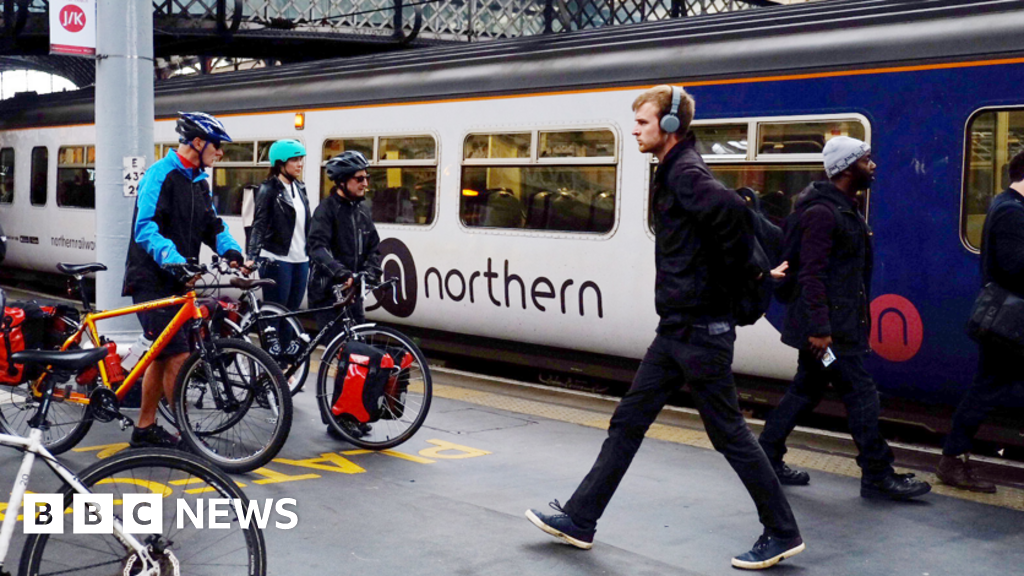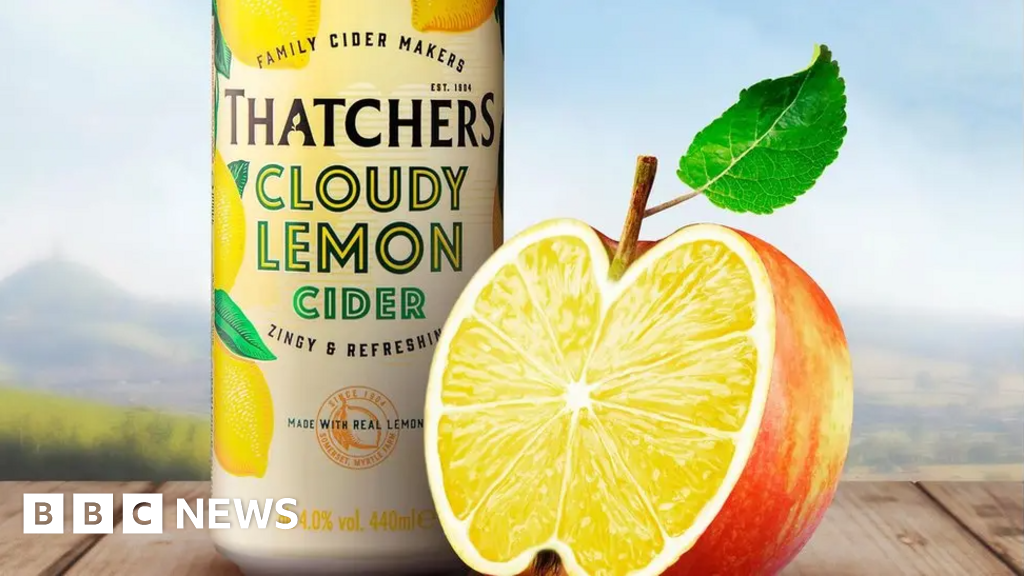ARTICLE AD BOX
 Image source, Getty Images
Image source, Getty Images
Abba can take some credit for Stockholm's bustling music tech scene
By Maddy Savage
BBC News, Stockholm
From Abba to Spotify, Avicii to Soundcloud, Stockholm has spawned both some of the world's most successful musicians and music tech companies.
With seven wins, Sweden has won the Eurovision Song Contest more than any other nation and Malmö will host this year's competition.
That legacy is evident moments after stepping off the underground at Stockholm's central station.
Sergels torg, the capital's main square paved in black and white triangles, is home to the Avicii Experience, an interactive museum celebrating the late Tim Bergling. He grew up here and became one of the world's bestselling DJs under his artist name Avicii.
On the fifteenth floor sits Per Sundin, chief executive of Pophouse Entertainment which runs the museum. The company is focussed on creating the "next generation" of high-tech entertainment experiences, with a portfolio that also includes the Abba Voyage stage show in London, performed by avatar versions of Sweden's biggest supergroup.
It is developing plans for a new show in 2027 involving digital versions of the US rock band Kiss, after testing the technology at the band's final real-life gig last year.
"What's the similarity between Kiss and Abba?," asks Mr Sundin rhetorically from his private office with floor-to-ceiling windows. "They really have super fans, both artists, and they have a wide catalogue, and they have global presence all over the world."
Despite selling more than two million tickets for Abba Voyage since May 2022, he says Pophouse Entertainment still hasn't broken even on its investments, which include the technology (created in collaboration with US filmmaker George Lucas's visual effects company Industrial Light and Magic), and the event's bespoke east London arena.
Image source, Maddy Savage
Image caption,Per Sundin's firm is using virtual tech to keep bands performing
But Mr Sundin - a former Universal Music executive - says he has faith in the concept, and hopes it can be adapted for a handful of other big-name legacy artists in future.
"This is for those who can't tour anymore, can't really make themselves as good [as they were]... or [want to] do different kinds of things with their music legacy," says Mr Sundin.
Pophouse's innovations follow a string of other music tech success stories emerging from Stockholm, a capital with a population of just 10 million.
Daniel Ek's Spotify launched here in 2008, while Soundcloud was founded a year earlier by two students from Stockholm School of Economics, Alex Ljung and Eric Wahlforss, who later relocated the business to Berlin.
Other companies who've made a global impact include Soundtrack Your Brand, which provides a subscription service enabling businesses to play commercial music without licensing issues, and Epidemic Sound, a platform for rights-free music for content creators, recently valued at 12.5bn kronor (£950m; $1.2bn), according to Swedish business news site Dagens Industri.
"We all know there must be something in the water," laughs Sarah Herlin, co-founder of Stockholm Music City, an organisation that encourages collaboration between the capital's music and tech sectors, and provides support to start-ups.
Image source, Maddy Savage
Image caption,Sarah Herlin says there is a culture of collaboration among Swedish start-ups
On a more serious note, she argues that there are several key ingredients in Stockholm's recipe for music tech success.
These include Sweden's historically strong music scene, with artists like Roxette, The Cardigans and legendary pop producer/songwriter Max Martin cementing the reputation set by Abba, and giving credibility to Swedish tech companies with a music-related focus.
Plus, the country has long had a tech-savvy population, with many of today's entrepreneurs growing up in the 1990s when there were tax cuts on home hardware in Sweden, followed by an early adoption of broadband.
The business culture in Sweden, which tends to promote collaboration over competition has also created a supportive ecosystem, argues Herlin.
"If you realise someone else is doing the same thing, you contact each other and see how can we do this together," she says. "That often means that they all succeed instead of nobody succeeding."
One recent example is Elk, a company that provides a remote, collaborative recording platform for artists, which was founded after two local businesses figured out they were developing similar software tools.
Ms Herlin has just finished a meeting at The Node, a physical recording studio hub which opened last year on the same square as the Avicii museum, and includes some of the late DJ's equipment. "Where you have producers, you will have music tech start-ups, and you will have investors coming to check it out," she says.
Late on a Monday afternoon the neon-pink lit cafe area is largely empty, save for several nonchalant staff. But Ms Herlin says the space is creating a global buzz. "We've noticed already people pop up here from New York and from London to check it out."
Seedtable, a platform that tracks the fastest growing companies in Europe lists 69 music and and audio start-ups to watch and work for in 2024, with 13 of them based in Stockholm, more than any other city in relation to population size.
Image source, Maddy Savage
Image caption,Ankit Desai is looking for "diamonds in the rough"
A few blocks away from The Node, one of them, Snafu Records, is based at a shared office space with a parquet floor and a cocktail bar.
Described by its co-founder and chief executive Ankit Desai as "the first AI enabled music label in the world", the start-up has developed an algorithm which trawls the internet to pinpoint new artists it believes can make an impact.
"We try to find those diamonds in the rough… those undervalued artists and give them a platform to shine," says Mr Desai.
Since launching in 2019, the company has signed more than 150 artists. Snafu Records takes a 50% cut of all its artists earnings, although Desai says most traditional labels take up to 80%.
The start-up's investors include Agnetha Fältskog (Agnetha from Abba), Finnish gaming entrepreneur Mikko Kodisoja, and Pophouse Entertainment, and it raised $7m (£5.5m) in its second funding round in late 2023. But Mr Desai admits that raising capital was "a lot harder" than when the label first launched in 2019, and the company is yet to turn a profit.
Emil Widhagen, a journalist for Swedish tech and start-up news site Breakit, argues many of Stockholm's music tech start-ups are facing similar challenges to Snafu Records, as a result of global economic jitters.
"People tend to move towards more safe investments in more difficult times, and music tech companies in general aren't producing profits, not even Spotify."
Indeed, Spotify - the world's biggest subscription audio streaming site - reported a loss of around €75m (£64m; $82m) in the final quarter of 2023, despite cutting around 1,500 jobs. But the company still saw a 4% increase in subscribers despite putting its prices up.
Some music tech entrepreneurs argue the speed at which AI tools are growing globally is also putting pressure on Stockholm's well-oiled music tech ecosystem.
Image source, Maddy Savage
Image caption,Emelie Olsson says raising money is harder for start-ups than before
"One of the biggest challenges is to keep up with everything," says Emelie Olsson, chief operating officer and co-founder at Corite, a music tech start-up which uses crowdfunding to help artists gain financial backing from fans (and rewards fans if artists score a hit). "It's really a race, I would say, with a lot of companies doing a lot of cool things at the same time."
Corite has also struggled to turn a profit, and is pinning its hopes on a new tool for artists and other content creators which is launching later this year.
"We are about to raise money again and we are definitely humble," says Ms Olsson. "I think, companies have a bit more to prove a bit earlier than they had before."

 10 months ago
22
10 months ago
22








 English (US) ·
English (US) ·